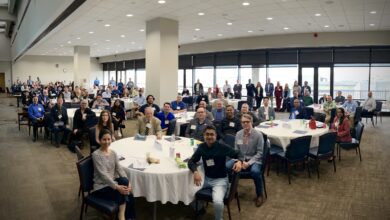
A 29 September Senate Commerce, Science and Transportation Committee hearing looked at the challenges of securing U.S. leadership in emerging computing technologies, and highlighted the three technologies targeted in the recently passed CHIPS and Science Act of 2022 — artificial intelligence (AI), quantum information science (QIS) and distributed ledge technologies (DLT).
According to hearing organizers, applications in these fields have the potential and are beginning to transform not only computation but also the agriculture, healthcare, industrial, transportation, and national defense sectors, which will raise further social, ethical and legal implications.
Among the committee’s concerns are identifying follow-ups to the Chips and Science Act needed to: (1) meet the challenge of international competition; (2) leverage opportunities for collaboration between the government, academic and business sectors; and (3) build a diverse and inclusive workforce to meet growing demand.
Testimony was received from six witnesses, including three IEEE members:
- Dr. Nancy Allbritton, Frank and Julie Jungers Dean College of Engineering Dean, University of Washington
- Mr. Jack Clark, Co-Founder, Anthropic
- Mr. William B. (Trey) Breckenridge III, Director of High Performance Computing, High Performance Computing Collaboratory (HPC2), Mississippi State University
- Mr. Steve Lupien, Director of Center for Blockchain and Digital Initiatives, University of Wyoming, College of Business
- Dr. Bob Sutor, Vice President, Corporate Development, ColdQuanta.
- Dr. Henry Jones, Director of the Research Development and Scientific Entrepreneurship, The University of Southern Mississippi
Dr. Allbritton, an IEEE member, highlighted the research being done at the University of Washington and other institutions on quantum computing, but noted that “the lack of critical capabilities, primarily originating from the large cost of implementing and maintaining them, hampers our impact.”
Anthrophic co-founder Jack Clark focused on AI-related R&D and urged “the development of an experimental infrastructure at scale for the development and testing of artificial intelligence systems by academic and government users.”
Trey Breckenridge, also an IEEE member, highlighted the work on high-performance computing being done at Mississippi State University and urged funding of the initiatives authorized in the Chips and Science Act. He noted that “We must utilize all the expertise that exists throughout the U.S. and grow the technology workforce, not just in existing U.S. technology centers but throughout the country.”
Bob Sutor, of ColdQuanta, highlighted that state of quantum computing technology and urged Congress to require “better procedural and program mechanisms to navigate the so-called ‘valley of death’ stage of development, where we have scattered investment in and development of the pieces without integration into deployed systems of record.”
Dr. Henry Jones, IEEE member and Director of Research Development and Scientific Entrepreneurship at the University of Southern Mississippi, urged the federal government to continue to accelerate its support for emerging computing technologies. He endorsed the creation of the new NSF Directorate for Technology, Innovation, and Partnerships, noted that important role that the federal EPSCOR program plays in creating research relationships that can lead to unexpected innovations, urged that the new regional “tech hubs” authorized by the Chips and Science Act be supported through the creation of aligned capital pipelines from angel to venture, and emphasized the need to improve STEM education in the early educational pipeline.
To watch the hearing or read the witness statements, go to: https://www.commerce.senate.gov/2022/9/securing-u-s-leadership-in-emerging-compute-technologies






